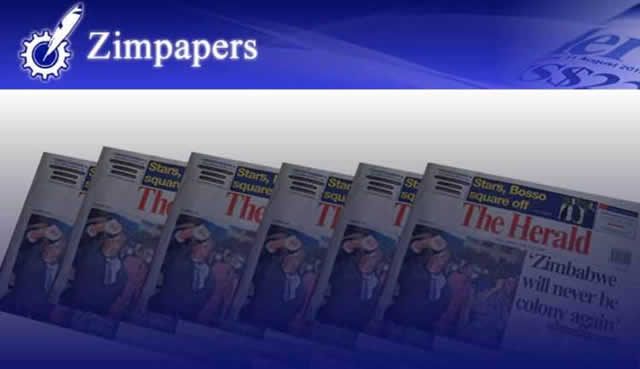Editorial Comment: Media’s Kalanga claims cannot stand scrutiny

 WE are not surprised though, we are hardly amused by the desperate bid by sections of the private media and their opposition embeds to create a storm in a tea cup over President Mugabe’s retelling of the colonial stereotype that Kalangas who troop into South Africa from Matabeleland South are uneducated and become petty criminals in the host country.
WE are not surprised though, we are hardly amused by the desperate bid by sections of the private media and their opposition embeds to create a storm in a tea cup over President Mugabe’s retelling of the colonial stereotype that Kalangas who troop into South Africa from Matabeleland South are uneducated and become petty criminals in the host country.
Addressing a Press conference at the end of the Sadc Extraordinary Summit in Harare last week, President Mugabe recalled a pre-independence stereotype that most Zimbabwean emigrants to South Africa were Kalangas from Matabeleland South who had little education.
Some sections of the media latched on to the President’s sentiments which they widely interpreted as an attack on Kalangas going to the extent of calling for the resignation of Government ministers and exhumation of national heroes they alleged to be of Kalanga extraction.
But even their audit of our national heroes, as we report elsewhere in this issue, is as erroneous as their take on the President’s statement.
We say, storm in a tea cup, because only a dimwit or dishonest person can assert that President Mugabe shares that colonial stereotype given the interventions that he has made in his personal and official capacities towards the upliftment of not only Kalangas in Matabeleland South, but all other Zimbabweans in general. The interventions have taken the form of the progressive education for all policy that has thrust Zimbabwe to pole position in terms of literacy in Africa, the Presidential Scholarship Programme that covers every province and the Presidential Computerisation Programme, all of which were spearheaded by the President.
For instance, statistics from the Presidential Scholarship Programme show that of the 20 418 beneficiaries since the launch of the programme in 1995, ten percent or 2009 beneficiaries were from Matabeleland South, a sparsely populated province of only 683 893 inhabitants according to the 2012 population census report. What this means is that despite being sparsely populated compared to the populous Mashonaland provinces, Mat South actually got the lion’s share of beneficiaries. This is not a picture of a people who are maligned or scorned by their benefactor.
The same census report revealed that, just like in other provinces, though about 12 percent of the population of Mat South age 3-24 years had never been to school, 87 percent of them were below the age of 6 years, meaning many of them were still to start school and would attend school.
Fifty-five percent of the population is attending school and the literacy rate for Matabeleland South stands at 95 percent, which compares favourably with the populous Mashonaland East which has a population of 1,5 million and a literacy rate of 96 percent and Midlands: population 1,6 million, literacy rate of 95 percent, to mention just a few provinces.
These are cold, hard facts which can never be changed by the self-serving, desperate attempts of failed politicians and struggling regime change media keen to precipitate or paint the picture of a crisis where none exists, all in a bid to curry donor funds.
It is not a secret that there is a section of our society that hates national unity, that tries at every stage to brew tribal discord for selfish political ends.
Yet these same sections of society conveniently forget that their very existence in a democratic Zimbabwe, which they fight at every turn, is because of the peace fomented by the unity that they try to trash at every turn.
Such forces must never be entertained but should be shunned like the plague.
Their claims on Kalangas cannot stand scrutiny in independent Zimbabwe.










Comments